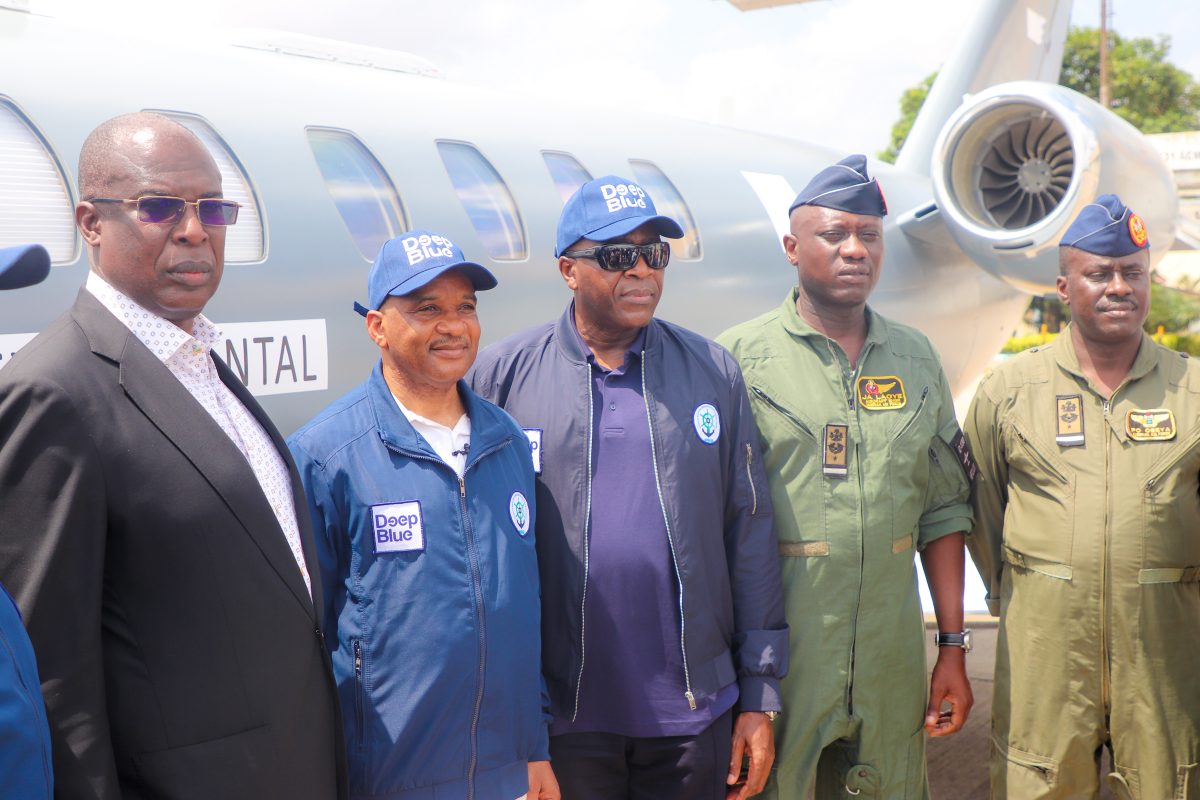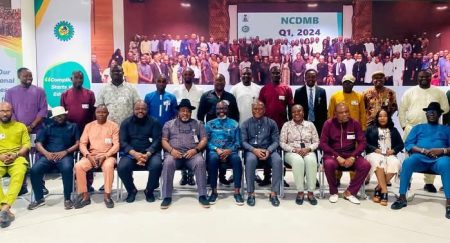Toritseju Vincent
Lagos — Maritime stakeholders have identified insecurity on the nation’s highways and Waterways as being responsible for the high cost of doing business at the ports as Nigerian bound cargoes are forced to pay higher freight rate.

According to some stakeholders, who spoke at ongoing National Transport Summit hosted by the Chartered Institute of Transport Administration in Nigeria, CIOTA, Nigeria needs to sustainably invest in securing the waterways for the safety of ships coming to the ports.
Speaking during a panel session with the theme, ‘Maritime Safety and Security Administration in Nigeria,’ Emmanuel Jime, the executive secretary of the Nigerian Shippers Council (NSC), said that shippers are paying high freight on goods coming to Nigerian Ports.
According to him, cargoes that are supposed to go to the Eastern ports in Calabar and Port Harcourt are being diverted to Lagos ports due to the high rate of insecurity in the Niger-Delta waters.
Jime, who was represented by Cajetan Agu, a Director from the Nigerian Shippers Council, said there is high freight differential between the Lagos Ports and Eastern ports due to the paying of war risk insurance on cargoes.
He said that shippers pay between $1,000 and $1,500 as freight on Eastern port bound cargo when compared to the freight for Lagos port bound cargo.
“Insecurity impact negatively on the cost of doing business at our ports and the cost is being transferred to the consumers of goods and services. Even ships coming to Lagos Ports used to pay about $2,500 at the Lagos secure anchorage zone, which was terminated by government at the introduction of the Deep Blue Project of the NIMASA,” Jime said.
Bashir Jamoh, the Director General of the Nigerian Maritime Administration and Safety Agency (NIMASA), said the essence of the NIMASA’s investment in the Deep Blue Project was to improve security in Nigeria’s waters and to reduce the payment of war risk insurance by ships coming to Nigerian Ports.
He said NIMASA has invested over $200 million in aquiring assets for the implementation of the Deep Blue Project.
Jamoh, who was represented by Chudi Offodile, Executive Director, Finance and Administration, listed the assets acquired by NIMASA to include vessels, unmanned aerial vehicles, helicopters, satellite systems, armoured vehicles and the training of over 600 military personnel to operate the Deep Blue Project.
“The NIMASA investment in the Deep Blue Project has become cost effective for Nigeria and is yielding positive results,” Jamoh said.
The NIMASA boss said the agency is focused on ensuring that the successes recorded in the implementation of Deep Blue Project is sustainable.
According to him, the agency has made moves to ensure international ships coming to Nigeria remove the war risk insurance on Nigerian bound cargo, but the International Maritime Organization has insisted that the success in reducing piracy must be sustained for that to happen.
On his part, Innocent Ogwude, the Deputy Vice Chancellor of the Maritime University of Nigeria, Okerenkoko in Delta State, said that achieving safety in Nigerian inland waters is about risk reduction.
He said if the waterway is free, goods and services will move freely and the cost would be reduced.
According to him, Nigeria needs to spend money to deploy technology to track security threats on the waters because spending to build security on waterway shows how the country value human lives.
Earlier in his address, Julius Adelusi-Adeluyi, chairman of 2022 CIOTA Summit, told the members of the Institute to never relent in asking the government to create the enabling environment to ease the development of transportation business in Nigeria.
He said the transportation sector is huge and getting bigger all over the world and it include airways, roadways, railways or waterways.



